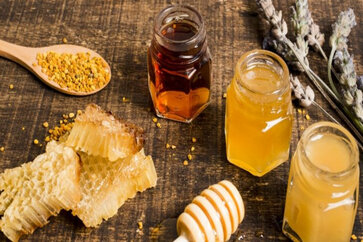The Best Ayurvedic Medicine For Joint Pain
Joint pain is a commonly reported issue that often arises with age. In many cases, these pains are associated with arthritis, which encompasses various types occurring in old age.
In all these types of arthritis, the underlying cause is the gradual deterioration of joint cartilage due to aging rather than any external attack. Consequently, joint pains can be considered as an autoimmune disease, wherein the body’s immune system mistakenly attacks its own tissues.
In Ayurveda,arthritis joint pain is referred to as “Sandhi Vata.” The term “Sandhi” means “common” in Sanskrit. According to Ayurvedic principles, Sandhi Vata is believed to occur due to the imbalance or corruption of the Vata dosha within the body.
Sandhi Vata can be triggered by various factors, including rheumatism, infections, gout, hemophilia, trauma, and even digestive issues leading to the accumulation of Ama (toxins) in the body.
Indian Herb Good For Joint Pain
Here are some beneficial herbs commonly used in the treatment of joint pains:
1. Alfalfa (Medicago Sativa): Alfalfa is known for its effectiveness in reducing joint pain. It can be consumed as a tea, preferably four times a day.
2. Ashwagandha (Withania somnifera): Ashwagandha, also known as winter cherry, possesses several beneficial properties for the human body, including the treatment of joint pain.
3. Banyan (Ficus bengalensis): The sap of the banyan tree, which resembles rubber latex, can be applied externally to the affected joints. Regular application and massages with this sap can help relieve joint pains.
4. Bishop’s Weed (Ammi Trachyspermum): The oil extracted from Bishop’s Weed is applied topically to the affected joints to alleviate pain.
5. Celery (Apium graveolens): Celery is effective in treating rheumatism and gout, both of which can cause joint pain. Its alkaline content contributes to its efficacy in addressing joint pain, providing longer-lasting relief.
6. Dandelion (Taraxacum officinale): Dandelion is rich in magnesium, an essential element for proper bone mineralization. Its use can strengthen bones and protect them from pain.
7. Garlic (Allium sativum): Garlic is highly effective in treating joint pains. Consuming five or six cloves of garlic every morning can help alleviate the symptoms.
8. Ginger (Zingiber officinale): Ginger is also an excellent method for treating joint pain. It can be included freely in the daily diet or consumed as ginger tea, which offers additional benefits.
These herbs provide natural alternatives for managing joint pain and can be incorporated into a comprehensive treatment plan. However, it is always advisable to consult with a healthcare professional before starting any new treatment or herbal remedy.
Dietary Treatment Recommended For Joint Pain
When it comes to dietary treatments for joint pains, the following recommendations can be beneficial:
1. Ginger and Garlic: Both ginger and garlic are known for their anti-inflammatory properties and can help alleviate joint pain. If the smell of ginger is bothersome, you can slightly fry the garlic in butter to reduce the odor.
2. Bitter Tastes: Bitter-tasting foods are considered beneficial for arthritis. Include foods like bitter gourd and bitter drumstick in your diet without any concerns. These bitter foods can help in managing joint pain.
3. Avoid Food Acids: It is advisable for individuals with joint pain to stay away from food acids that can increase Vata dosha. Excessive Vata can worsen joint pain. Therefore, it’s best to avoid acidic foods.
4. Address Constipation: Constipation can contribute to increased joint pain. It is important to ensure regular bowel movements to prevent the aggravation of pain. Include fiber-rich foods, such as fruits, vegetables, and whole grains, in your diet to promote healthy digestion.
5. Limit Unpalatable and Fried Foods: It is recommended to avoid foods that are unpalatable or cause discomfort, as they may have an adverse impact on joint pain. Additionally, fried foods should be minimized as they can aggravate Vata dosha.
Remember that dietary changes may vary for individuals, and it is always beneficial to consult with a healthcare professional or a registered dietitian who can provide personalized recommendations based on your specific condition and dietary needs.
Ayurvedic Treatments For Joint Pains
Ayurveda offers various treatments for different types of joint pains. When a patient seeks Ayurvedic treatment, the first step is to identify the underlying cause of the pain.
Based on the diagnosis, specific medications and therapies are prescribed. Here are some Ayurvedic treatments commonly used for joint pains:
1. Ama Vata (Rheumatoid Arthritis) Treatment
Ama Vata is associated with low digestive fire and the retention of toxins (Ama) in the body. The initial step is to eliminate these toxins by fasting and purging if necessary.
Then, a combination of herbs such as punarnava, Guggulu, galangal, and garlic is prescribed at a dose of one gram per day. Additionally, Dashamoolarishta, an Ayurvedic formulation, may be prescribed in a dosage of 15 milliliters three times a day for three weeks.
2. Traumatic Joint Pain Treatment
In cases of joint pain caused by trauma, the external application of Vishagarbha taila (a specific Ayurvedic oil) to the affected region is recommended.
Internally, the patient may be prescribed Guduchi Rasnadi Guggulu tablets, taken at a dosage of 250 mg three to four times a day with water.
3. Vata Ashtigata (Osteoarthritis) Treatment
Vata Ashtigata refers to osteoarthritis commonly observed in individuals older than fifty years. In this case, treatments like Pravala Panchamrita Lakshadi Guggulu are prescribed.
The dosage may be 125 mg twice daily for one month, followed by 250 mg three times a day for three months.
20 Home Remedies For Joint Pains
Here are 20 home remedies that may help alleviate joint pains:
1. Warm Compress: Apply a warm compress or heating pad to the affected joint to help reduce pain and stiffness.
2. Cold Compress: Use a cold compress or ice pack wrapped in a towel to reduce swelling and numb the area.
3. Epsom Salt Bath: Soaking in a warm bath with Epsom salt can provide relief by relaxing the muscles and reducing inflammation.
4. Turmeric: Turmeric contains a compound called curcumin, which has anti-inflammatory properties. Add turmeric to your meals or drink turmeric tea.
5. Ginger Tea: Ginger has natural anti-inflammatory properties. Prepare ginger tea by steeping fresh ginger slices in hot water and drinking it.
6. Massage: Gentle massage with warm oil, such as sesame or coconut oil, can help improve blood circulation and reduce joint pain.
7. Apple Cider Vinegar: Mix 1-2 tablespoons of apple cider vinegar with warm water and honey. Drink this mixture once or twice a day to reduce joint pain.
8. Fenugreek Seeds: Soak fenugreek seeds overnight and consume them in the morning to help reduce joint pain and inflammation.
9. Olive Oil: Massage warm olive oil onto the affected joint to relieve pain and improve flexibility.
10. Fish Oil: Omega-3 fatty acids present in fish oil can help reduce inflammation. Consider taking fish oil supplements after consulting with a healthcare professional.
11. Tart Cherry Juice: Drinking tart cherry juice may help reduce joint pain and inflammation due to its antioxidant and anti-inflammatory properties.
12. Cinnamon: Add cinnamon powder to warm water or tea and consume it to relieve joint pain.
13. Honey and Cinnamon Paste: Make a paste by mixing honey and cinnamon powder and apply it to the affected joint for pain relief.
14. Garlic: Include garlic in your diet or consume raw garlic cloves daily to help reduce joint pain.
15. Cayenne Pepper: Mix cayenne pepper powder with warm olive oil and apply it topically on the joint for pain relief.
16. Green Tea: Green tea contains antioxidants that may help reduce inflammation and joint pain. Drink 2-3 cups of green tea daily.
17. Aloe Vera Gel: Apply aloe vera gel directly to the affected joint to soothe inflammation and reduce pain.
18. Dandelion Leaves: Boil dandelion leaves and drink water to help flush out toxins and reduce joint pain.
19. Balanced Diet: Follow a well-balanced diet rich in fruits, vegetables, whole grains, and lean proteins to support joint health.
20. Regular Exercise: Engage in low-impact exercises like walking, swimming, or yoga to strengthen the muscles around the joints and improve flexibility.
Important Note: These remedies may provide temporary relief and may not be suitable for everyone. If you have persistent or worsening joint pain, it’s recommended to consult with a healthcare professional for a proper diagnosis and treatment plan.
Ayurvedic treatments often emphasize a holistic approach, which includes dietary modifications, lifestyle changes, and various therapies like Panchakarma to restore balance in the body and alleviate joint pain. Consulting an experienced Ayurvedic practitioner is essential for personalized treatment based on individual needs.























